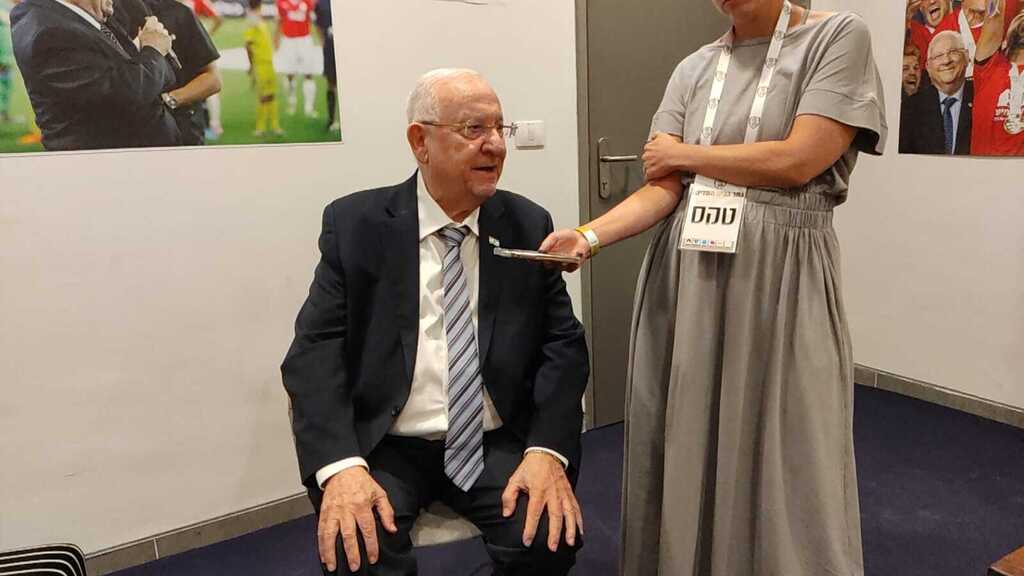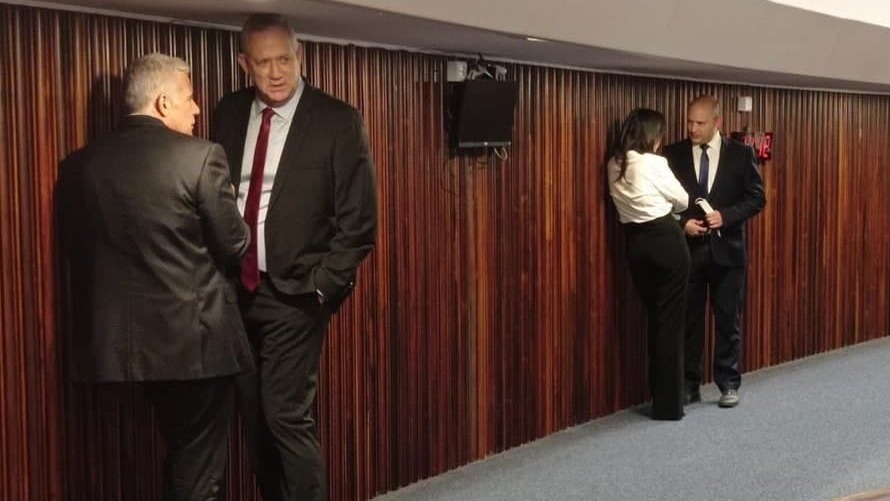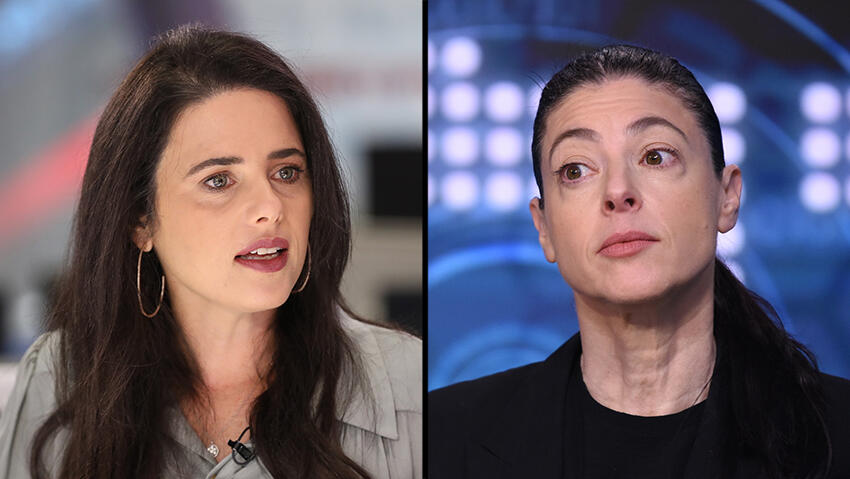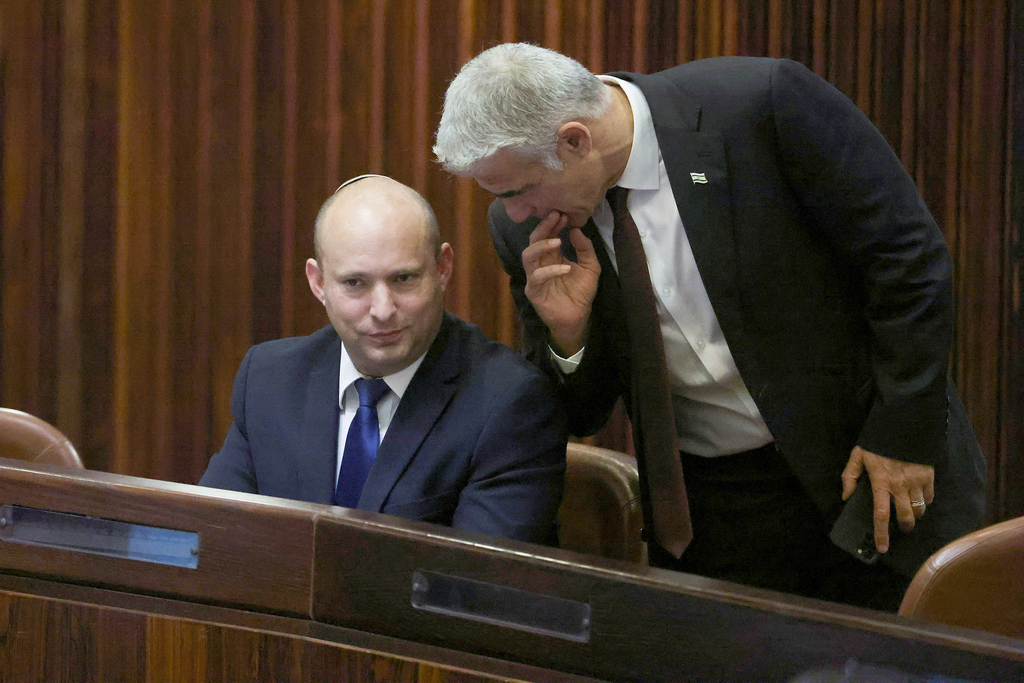Getting your Trinity Audio player ready...
An amalgam of parties from across the political spectrum reached agreement Wednesday night to form a government that spells the end of Benjamin Netanyahu's 12 years as prime minister.
Yesh Atid leader Yair Lapid struck deals with his partners in the so-called coalition for change with less than an hour to go before a midnight deadline that would have seen the mandate for forming a government return to President Reuven Rivlin and likely sent Israel into its fifth round of elections since April 2019.
5 View gallery


Yair Lapid, Naftali Bennett and Mansour Abbas reach agreement on a coalition government, June 2, 2021
(Photo: Nawaf al-Nabari)
For the first time in Israeli history, the coalition agreement includes an Arab party.
Lapid called Rivlin with minutes to spare to inform him that he had successfully put together a government.
Rivlin congratulated Lapid, saying that he expects Knesset to convene as soon as possible to vote to ratify the government.
5 View gallery


President Reuven Rivlin listens as Yair Lapid informs him that he has formed a government
(Photo: GPO)
As the clock ran down on Lapid's allotted time to form a government, pressure was mounting Wednesday on his prospective coalition partners to reach an agreement.
Lapid met Wednesday night at the negotiation headquarters at Kfar Maccabiah near Tel Aviv with Ra'am leader Mansour Abbas and Yamina head Naftali Bennett in a last-ditch effort to resolve outstanding issues before midnight, when the mandate would have returned Rivlin.
5 View gallery


Yair Lapid and Benny Gantz huddle close to Ayelet Shaked and Naftali Bennett in the Knesset as the deadline for forming a coalition approached, June 2, 2021
(Photo: Ari Kalman)
The coalition deal hinged on support from eight parties from across the political spectrum, as each faction's seats are required to reach the support of the 61 lawmakers needed to form a majority government.
Yesh Atid has 17 seats; Benny Gantz's Blue & White has eight seats; Labor, Yamina and Avigdor Liberman's Yisrael Beytenu each have seven; Gideon Saar's New Hope and Meretz under Nitzan Horowitz have six apiece; and Ra'am has four.
5 View gallery


Ayelet Shaked, left, and Merav Michaeli at at odds over the judicial selection commitee
(Photos: Kobi Kuankas and Hadar Yoavian)
The major remaining stumbling block was the appointment of Labor party leader Merav Michaeli to the committee to select judges, which Yamina no. 2 Ayelet Shaked was demanding in order to join the new government.
The two parties ultimately reached a compromise as talks ran into the night.
Yamina's agreement with Yesh Atid states that Bennett will serve as prime minister for the next two years in a rotation with Lapid.
5 View gallery


Naftali Bennett and Yair Lapid talking in the Knesset as MKs voted for a new president, June 2, 2021
(Photo: Reuters)
Abbas had posed another potential roadblock for the new government, but by Wednesday evening, his Islamist party had reportedly softened its conditions for supporting the new government, apparently withdrawing its demands for a deputy ministerial position and to overturn a law on illegal construction that disproportionately affects Israeli Arabs.
If Lapid had not mustered a coalition by midnight, the entire Knesset would have had three weeks in which to agree on a new candidate who can muster the support of 61 MKs. If that had failed, Israel would have been plunged into its fifth election since April 2019.
First published: 17:12, 06.02.21

